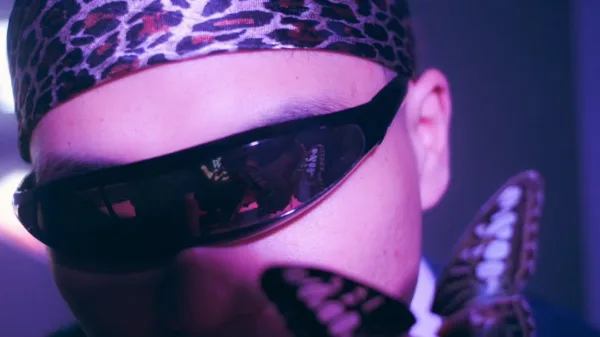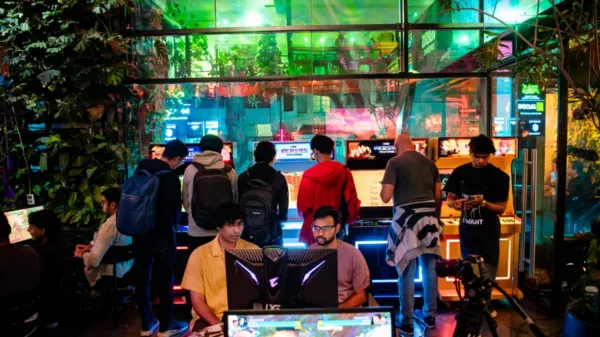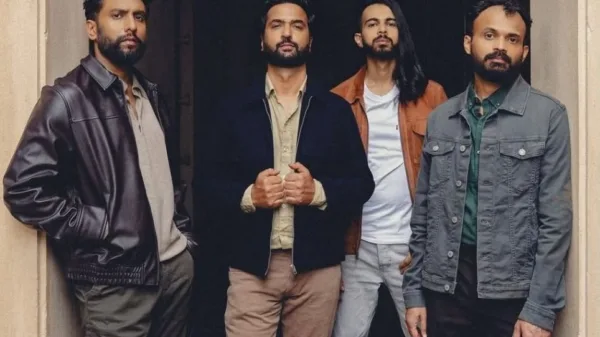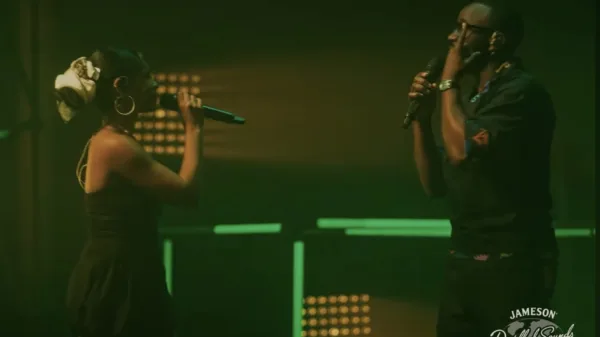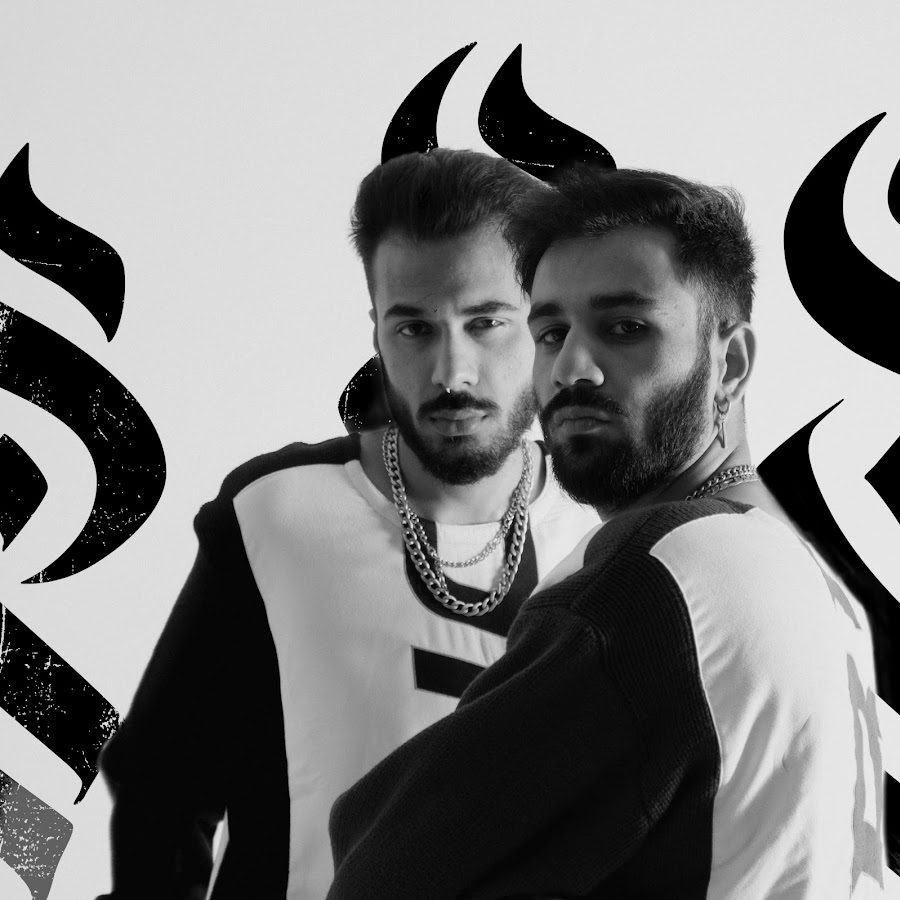2024 is SOS’ year in desi hip-hop, indubitably. From releasing some of the most, critically speaking, eloquent diss tracks this year to an entirely new EP that is a testament to their commitment to the genre as an art form and their own artistry — they have come a long, long way. TARYAQ, their 21 minute long, 6 song record, is confident, thought-out, and shows the duo’s calibre.
There had been quite some speculation this year regarding the duo’s relevance as artists — and how they would come to be defined only by their association with Seedhe Maut. It seems like Tufail and Aatankki have set the record straight. They might have come into mainstream spotlight courtesy their high-profile rap beef, but they have a discography that manages to enable them to stick their stilts into the rap-scape.
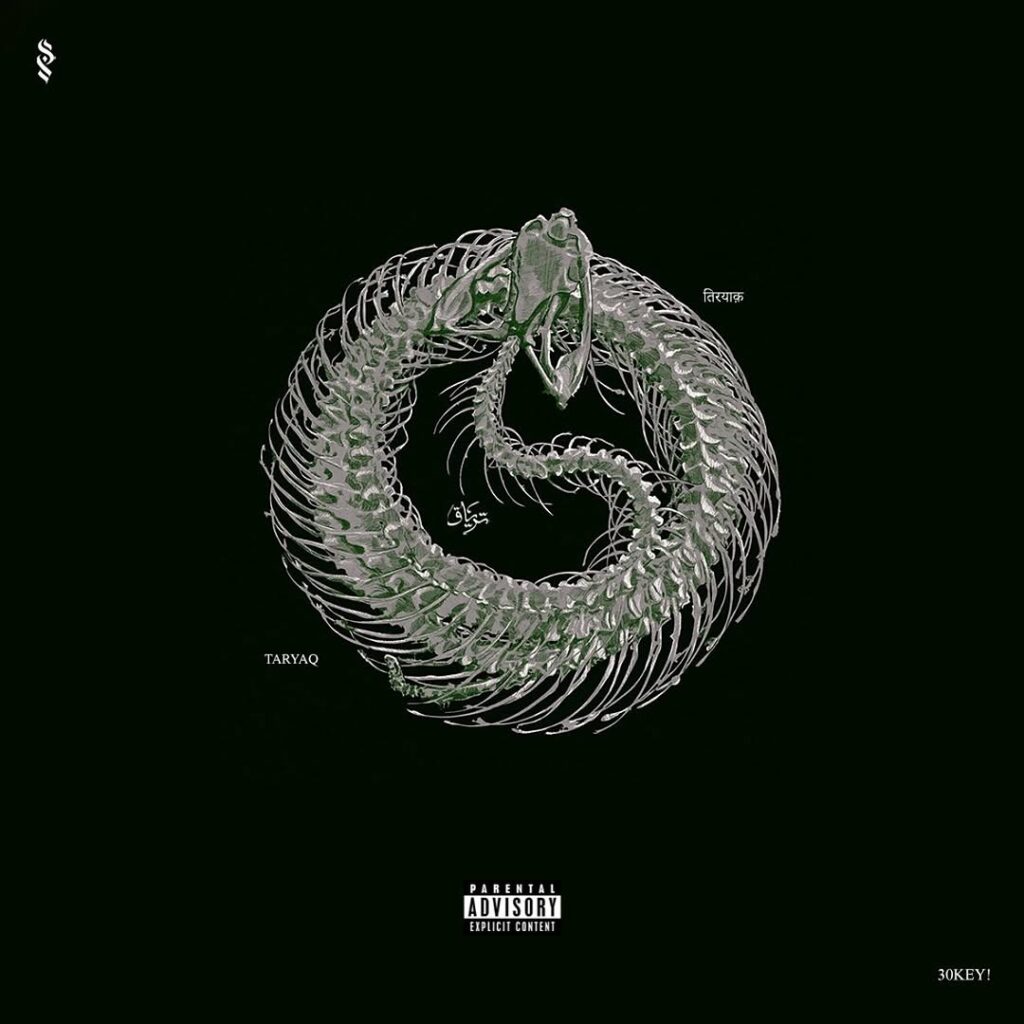
SOS describes the theme of the EP as “TARYAQ aims to inspire and uplift, reminding listeners that even in a world filled with challenges, there are always ways to find light and positivity. Each track acts as a reminder that we can be our own antidotes. Each track serves as a remedy to various societal issues and personal struggles, representing hope, healing, and resilience in the face of life’s poisons.” TARYAQ, as a project, is lyric heavy, and for the most part delivers on its promise of juggling between the personal and social. Its first track, CODISTAR, samples a Jordan Peterson conversation with Lewis Howes about greatness, and loops a dry cough as a reference to the medicine in its title. What one immediately notices is that Tufail and Aatankki have sharpened themselves. One can immediately guess that they have taken themselves and the crucial juncture of climbing up the ladder of more fame and critical acclaim and disappearing into irrelevance seriously. It is impressive with the amount of information that the duo packs into each verse, it does not change into an unrecognizable mess – instead, they keep punching, walking the line of being overwhelming but striking the balance of not entirely doing so and yet leaving you slightly reeling.
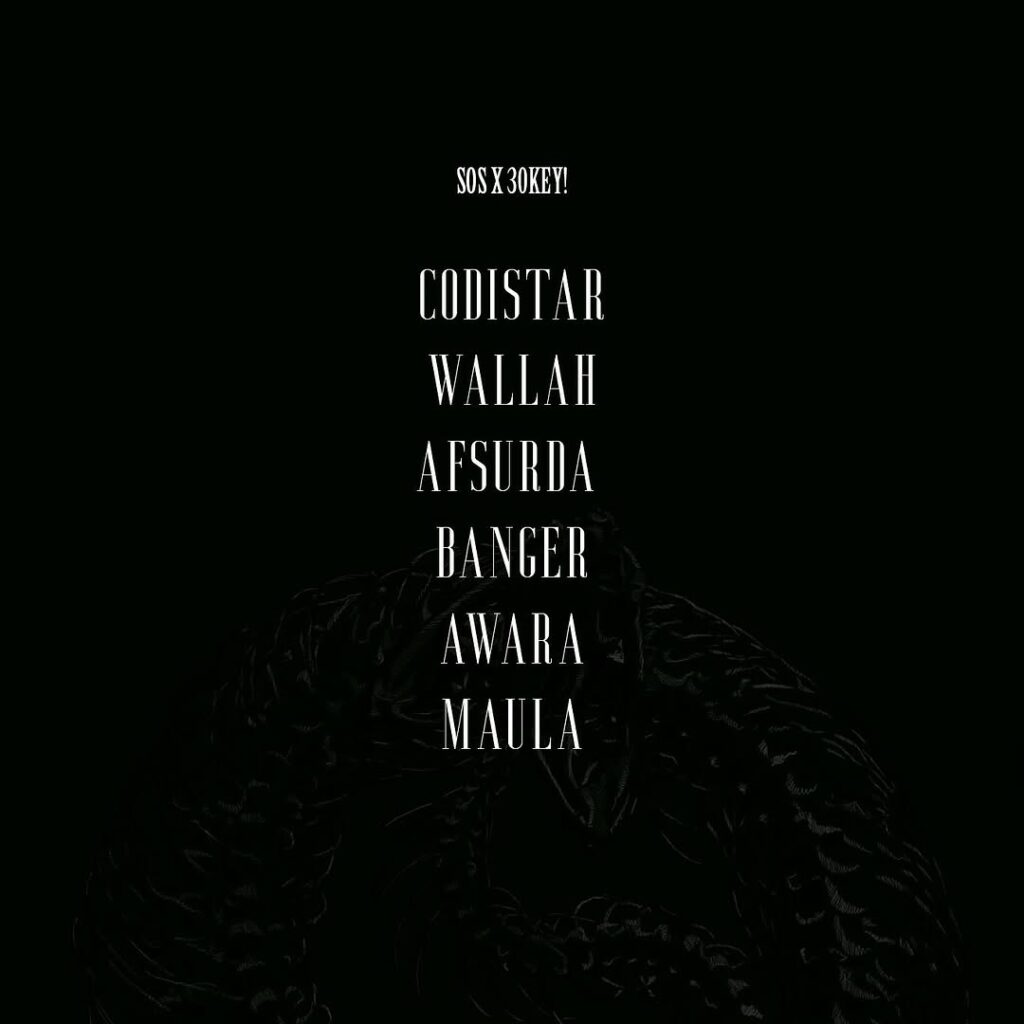
WALLAH is described by the two as “a powerful anthem that tackles societal criticism and the pervasive Issues plaguing the world. The lyrics paint a vivid picture of a society manipulated by unseen forces, where individuals are reduced to mere pawns in a larger game. Through sharp commentary, the song addresses topics like inequality, corruption, and apathy, urging listeners to wake up and recognize their role in this twisted chess match.” Tufail’s solo on this EP, this is arguably him at one of his bests when it comes to penmanship, as he states self-assuredly: “Maine bola tha na bete tu beta mai tera walid neeche baith tere baap se nai bada koi/Iss naam ka matlab he zariya hai/Tufail ek waseeh nazariya hai/Har gaane mein pehne ye taaj mai laata sehlaab doobe chaudah ke dariya mein”. It is satisfying to observe that Tufail, and SOS at large have not dissolved their identity in the face of consistent, harrowing attacks that weaponize their Kashmiri Muslim identity to invalidate anything they say by branding them as anti-nationals and terrorists. WALLAH is an example of how rooted SOS’ music is in their identities, histories, and cultures, and also a proof their resistance to backlash – that they can still make the music they feel is honest to themselves, that they feel speaks to their audiences and to their truths without succumbing to the pressures of conformity enveloping them.
They follow WALLAH with AFSURDA, a love-lorn, gentler track that borders on melancholic pursuit, and functions as an interlude – and a nice transitional point to BANGER, which is possibly one of the best tracks on the project, and the duo’s discography as a whole. Tufail and Aatankki’s contrasting vocal deliveries conjure up a high-energy number with a stimulating bassline. 30KEY!’s production really stands out on this one – one is usually aware that a track as fast-paced, raging, and which sounds like it has been lifted right off the underground navigates the precarity of sounding underproduced, or sometimes even too rough around the edges which although can be a producer’s intentional move, can meander itself into being too naive a product. 30KEY! manages to strike that midway balance.
The project ends with MAULA, Aatankki’s solo – and is introspective, and supposed to be a soul’s last conversation with God. Aatankki is more poet than rapper on this track, his relationship to God manifests into multiple verses, and intersperses a segment of him doing a spoken word section. It is almost stripped down in its presentation, devoid of unnecessary adornment, instead choosing to be more driven by reflective values. Bars like ‘Ab utaar tere andar khud ko khojna seekh jaan/Zulfeqar hai ye kalam kaatein aag se jo paani/Nikla kamane tu paisa lauta leke bekarari/Khud ke sawaalon mein kaid’ testify the artist’s control over his craft, where he negotiates simplicity without sounding half-baked or novice.
TARYAQ, without a doubt, is proof of SOS’ resilience and intelligent artistry. It is a statement that they are not going anywhere, in fact – it is, in all possibility, only uphill from now on.
















